Google continues to reward websites that provide desired user experience to visitors and punish websites that don't. This often times involves factors more technical than optimized keywords and on-page content. Each update to the PageRank algorithm is designed to display search rankings in a way that answers users queries in a faster and more accurate way than ever before. This means that the user experience aspects of SEO like site speed and site security are becoming more important with each update. With that being said, poor or nonexistent website maintenance can have potentially catastrophic effects on your site's SEO. The good news is that these pitfalls can be avoided rather easily. Much like cars, websites require ongoing maintenance to run at peak performance, and an ongoing Website Maintenance Plan can keep your website running fast and reliable at all times, and stop security breaches before they happen.
"Fast is better than slow"
"Fast is better than slow" is the number three "thing" on Google's "Ten things we know to be true." Google follows this rule by delivering billions of search results in tenths of seconds, and also by rewarding fast websites in their PageRank algorithm. Site speed is one of the most influential technical factors in Google's PageRank evaluation, and that's not changing anytime soon. But search rankings aren't the only reason to keep your site up to speed; site speed is also perhaps the most important aspect of online user experience. 47% of customers expect a site to load in two seconds, and 40% will abandon the visit if it takes more than three seconds to load. If the speed of your site is unsatisfactory, it doesn't really matter how great the content is.
Your website cannot run at maximum speed without regular software updates and website improvements, actions that ongoing Website Maintenance Plans cover regularly. If you think your site might be lacking in the speed department, the first step is to find out how Google evaluates your site speed. Check out Google's PageSpeed Insights to identify slow parts of your site, and learn how to improve them.
Hacks - don't risk it
Thousands of websites get hacked every day, and ongoing website maintenance is the best way to prevent it from happening to you. Regular CMS and plugin updates decrease your chances of being hacked tremendously. In fact, during the first quarter of 2016, the top three outdated plugins were responsible for 25% of all WordPress breaches (Securi Security, 2016). Simply put, you must have a process for regular and ongoing software updates to avoid getting hacked. The month you skip doing updates could very well be the month your contact form plugin gets hacked.
Getting hacked can be catastrophic for a site's SEO, and for good reason. When a website has a security breach, visitors of that site begin to lose trust, and so does Google. Google detects when websites get hacked and penalizes those that do. Repeated hacking of a website can even cause that site to be fully eliminated from all search results. This is a scary reality for any company whose business depends on their website, but hacks can be avoided. The time to stop website hacking isn't after it has happened; keep your website secure and prevent the hacks before they start with a Website Maintenance Plan.
You may be surprised just how common and costly website downtime is. All websites require regular, ongoing attention and software updates to ensure they run quickly, reliably, and securely. This is the exact reason that the fjorge Website Maintenance Plan was created. We handle everything from hosting and updates to backups, and everything in between. Have a question about website maintenance? Our team of experts will be happy to help.








